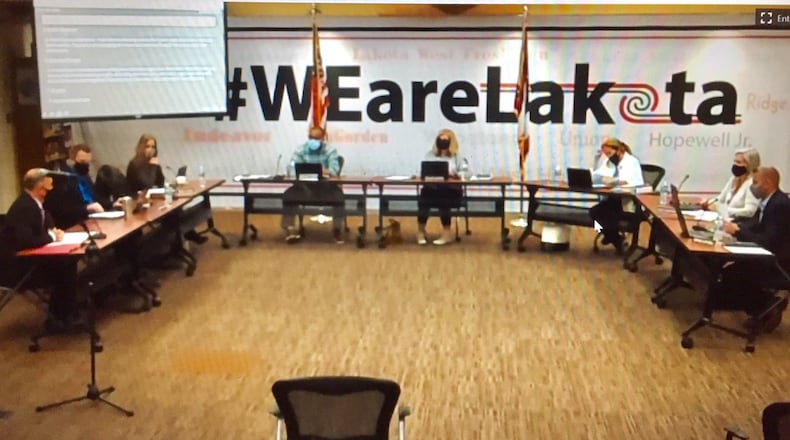Vanessa Wells’ lawsuit included among other allegations a claim the board provided only sparsely described meeting minutes from a July gathering where members voted to pick one of a number of plans to return to classes during the coronavirus pandemic.
Moreover, the lawsuit alleged the Lakota board did not publicly announce upcoming committee meetings nor provide minutes after those meetings were conducted.
In his late April judgment approving the settlement, Butler County Common Pleas Court Judge Gregory Stephens stated, “the (school) board and board’s committees failed to comply (with) requirement that a public body promptly prepare, file and maintain official meeting minutes at some of its meetings within the last two years.”
Stephens also stated the school board did not specify as required by state public meeting law the precise reason when the members moved into private, executive sessions for discussions.
And the board did not, he said, “provide adequate notice of their regularly scheduled and/or special meetings,” as required by law.
Stephens’ attorney, Matt Miller-Novak, told the Journal-News: “Lakota broke the law because their committees deliberated privately concerning taxpayer dollars and resources.”
“It does not matter if they did so out of negligence, ignorance, or on purpose. We held them accountable for their unlawful conduct, and they must now follow the law. We accomplished our mission,” said Miller-Novak.
In a statement read at a recent Lakota school board meeting, President Kelley Casper said: “The board has never intentionally violated the law; and, in fact, it has always taken a number of steps to be entirely transparent with the Lakota community,” citing posting of meeting videos on social media and the district’s website.
“Nonetheless, in an effort to preserve the district’s financial resources and quickly resolve this matter and move on, the board approved an agreed judgment entry in the Butler County case. This entry acknowledges that the board mistakenly and technically violated the (Ohio) Open Meetings Act.”
“The board always desires to be transparent and open in its business. It will continue to do so. To ensure that the board is entirely compliant with the law, it has undertaken an extensive audit of its policies and practices related to the Open Meetings Act and the Public Records Act. The board has received updated training on Ohio’s Sunshine Laws and will continue to take all necessary steps to complete the district’s business in an open and transparent way,” said Casper.
The violations do not reverse any board actions of the last two years, ruled Stephens.
Lakota was ordered by the judge to pay Wells $1,500 and $6,500 in attorney fees along with court costs.
Wells told the Journal-News, “the outcome of this lawsuit is a win for everyone who resides in the Lakota school district.”
The judge’s ruling “is just the first of many steps that parents and community members will be taking to hold the school board accountable from now on.”
About the Author

